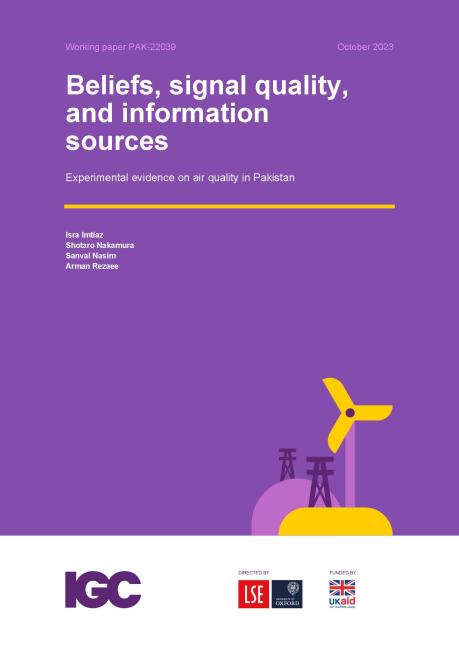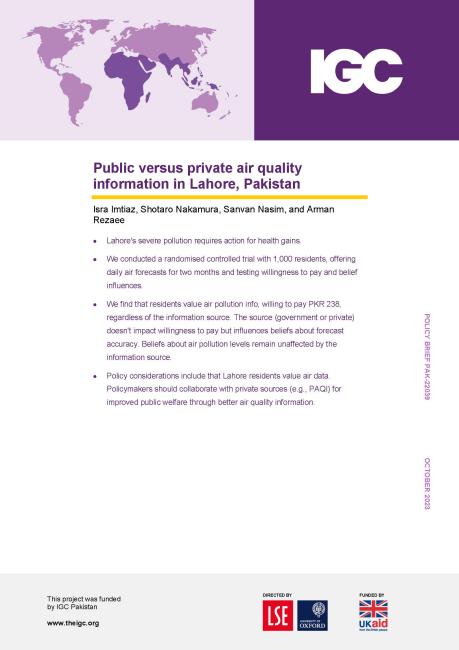Belief formation, signal quality, and information sources: Experimental evidence on air quality from Pakistan
Air pollution has become increasingly severe in recent years, prompting more attention on addressing this. Local daily air pollution reports are unreliable, leading to private companies providing measures and therefore competition. This study aims to look at how the information source impacts beliefs and how beliefs and behaviours change in response to air quality.
Adaptation to poor air quality in developing countries may be limited by little access to information. In Lahore, Pakistan, daily air pollution reports by the local environmental regulator are unreliable, leading to private initiatives providing independent measures. Competition from these private sources could improve citizens access to reliable information and increase government accountability.
This study aims to investigate how citizens change their beliefs and behaviours about air quality, and how that depends on the information source. We will run a field experiment providing a day-ahead pollution forecast to lower-middle income citizens in Lahore. The forecast model will take inputs from both sources, holding a constant signal quality but only attributing it randomly to one information source.
We will collect incentive-compatible measures of air pollution forecasts before, during and after the intervention to track the evolution of beliefs and the effect of association with the source. We will also measure the effects on adaptation behaviours to bad air and willingness to pay for high-quality filtration masks.
Air pollution has received public attention in recent years in Pakistan as smog has become more severe. This research is expected to assist the government and private stakeholders in addressing the fundamental lack of reliable air quality monitoring. This study will provide an insight on potential costs and benefits of improving accuracy of air quality monitors in terms of changes in beliefs and avoidance behaviours that improved data can influence.







